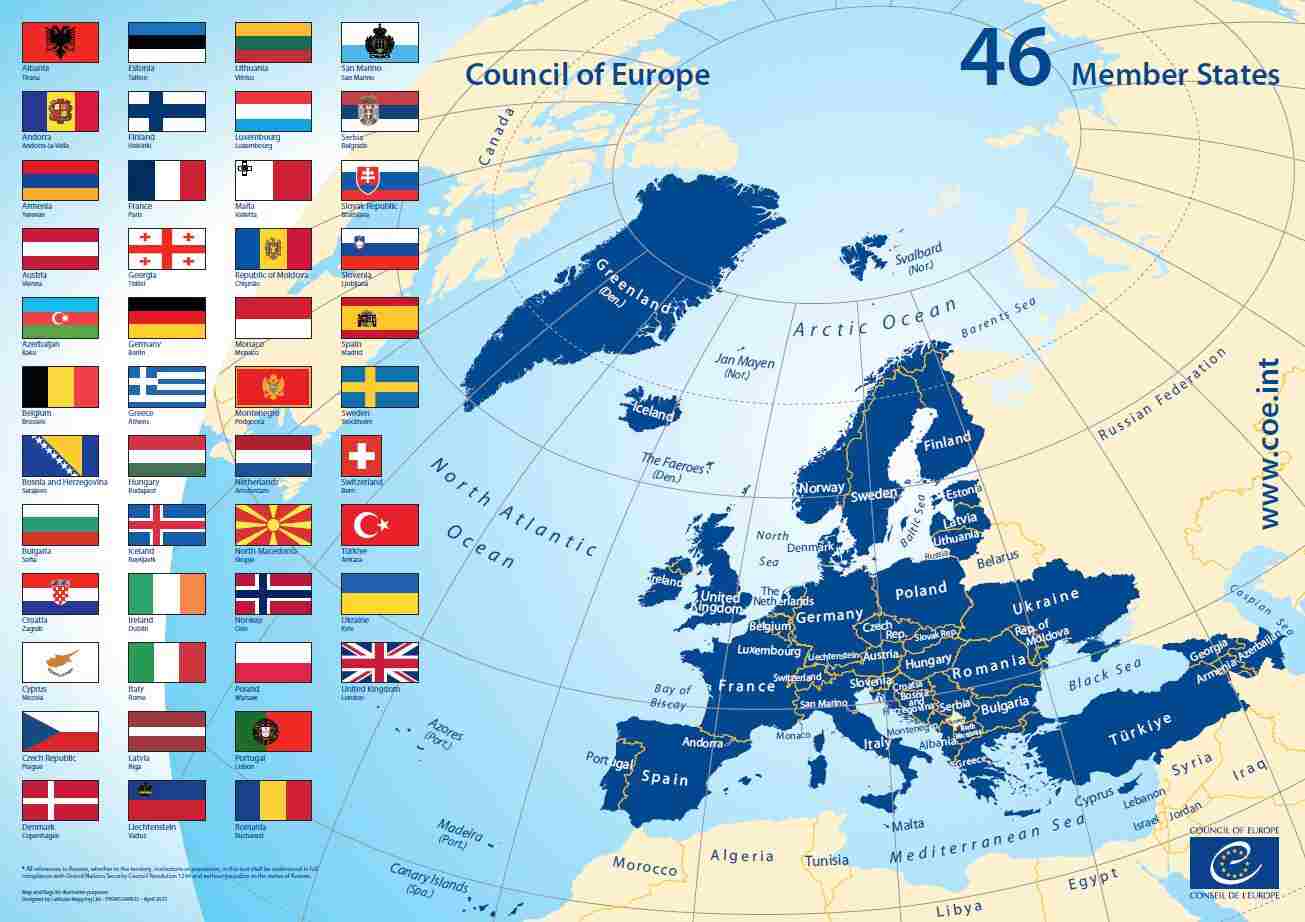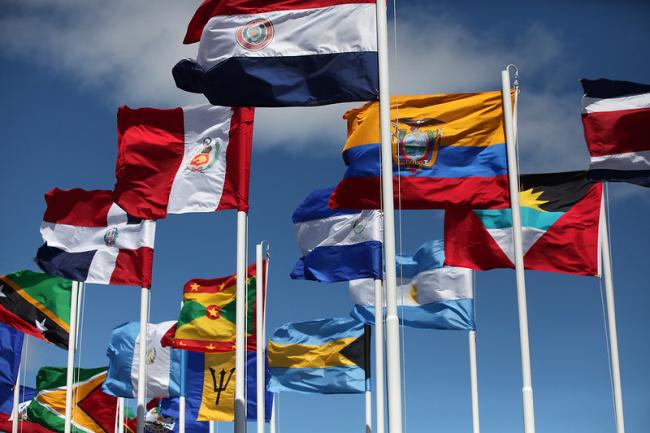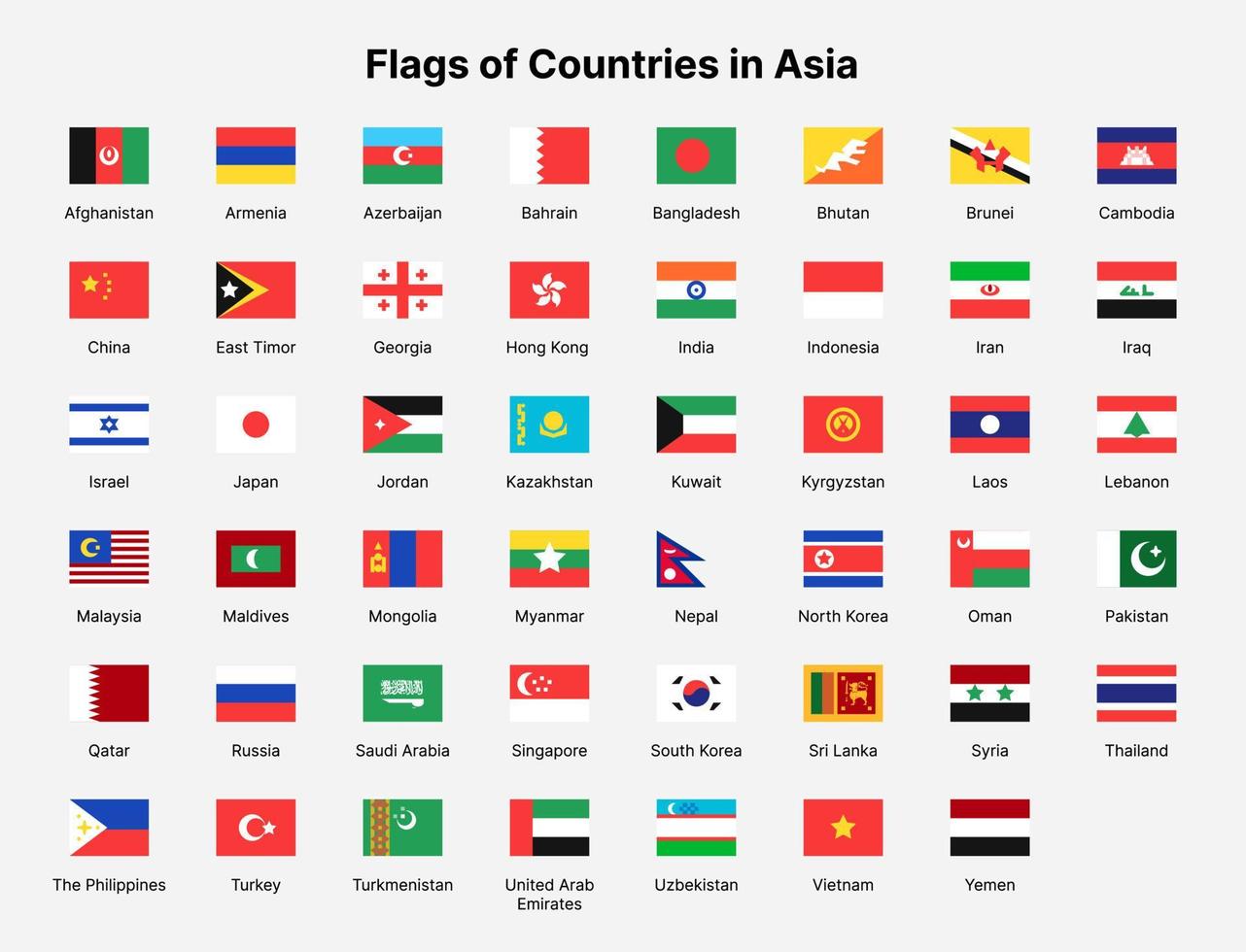What’s a Digital Nomad Visa?
It’s a passport to paradise – a visa for digital nomads allows you to legally live and work remotely in a foreign country for a specific period. Think of it as a step up from a tourist visa, or work permit granting you the freedom to work your magic (and pay bills) without breaking any immigration laws.
However, the digital nomad map is getting a vibrant makeover! Over 95 countries now offer some form of freelance visa for remote workers. Beyond familiar havens like Portugal and Bali, fresh contenders like Georgia and Mauritius are luring nomads with relaxed visa rules and breathtaking landscapes.
Greece, with its charm and budget-friendly vibes, is also poised to steal the spotlight. Countries are waking up to the economic boon of digital nomads, tailoring programs with easier income requirements, longer visa stays, and even family-friendly perks.
Countries Offering Digital Nomad Visa: Permanent Residency Requirements for Remote Workers

For digital nomads, the world is your office, and the possibilities for remote work are endless. But where you land your laptop and call home, temporarily or permanently, depends on the intricate tango of visas and residency requirements. This guide equips you with the essential information and key considerations to navigate the exciting (sometimes confusing) world of digital nomad visas and residency.
As remote work takes center stage, nations are rolling out the red carpet with top-notch internet, slick co-working spaces, and streamlined tax policies that allow digital nomads to live comfortably. Data-driven decisions are the new nomad mantra, platforms like Nomad List and Coworkers feeding intel on internet speeds, living costs, and visa details, making informed choices a breeze. Finally, sustainability is becoming the nomad soundtrack, with eco-conscious destinations like Costa Rica and Iceland attracting nomads who crave responsible travel and remote work experiences. Buckle up, digital nomads, the world is your ever-evolving oyster!
Qualifications and Requirements for Digital Nomad Visa Application
The allure of the digital nomad lifestyle – working remotely from anywhere in the world – is undeniable. But what qualifications do you need to join this vibrant community? While there’s no one-size-fits-all answer, there are key elements to consider.
- First, you need a remote job or income stream. Freelancing, online business ownership, or remote work for a company are all viable options. Some countries, like Estonia, offer “digital nomad visas” specifically for remote workers, while others allow remote work under specific visa types like freelancer visas or residence visas. Researching the visa requirements of your desired destination is crucial.
- Second, financial stability is essential. Many countries offering digital nomad visas have minimum income requirements, and you’ll need to demonstrate sufficient funds to support yourself during your stay after paying your visa fee. Additionally, consider healthcare costs and potential visa application fees.
- Third, adaptability and cultural awareness are key. Embrace the unfamiliar, learn basic phrases in the local language, and respect cultural norms. Building a supportive network in your chosen destination can be invaluable.
- Fourth, tech skills are often a plus. High-speed internet access is a must, and familiarity with online communication tools like video conferencing platforms is essential.
Remember, the “digital nomad” label isn’t just about remote work; it’s about embracing a global lifestyle. Explore different countries, immerse yourself in local cultures, and forge meaningful connections.
With careful planning and preparation, you can unlock the doors to a world of possibilities. Research your options, assess your qualifications, and prepare for your digital nomad adventure.
What are the requirements for a Digital Nomad Visa Application?
The allure of the digital nomad life – working remotely from anywhere on Earth – is undeniable. But before packing your laptop and booking a one-way ticket, understanding the visa requirements for a nomad residence permit in your chosen destination is crucial. While the global landscape of digital nomad visas is constantly evolving, some key elements paint a clearer picture. Here are some key aspects to consider:
1. Income Threshold
Many countries stipulate a minimum monthly income, often two to three times the local minimum wage, to ensure you can financially support yourself. Be prepared to show proof of income from your remote job or business.
2. Proof of Remote Work
Demonstrate that you have a stable remote job outside the host country. This might involve employment contracts, freelance invoices, or business documentation.
3. Health Insurance
Most countries require adequate health insurance coverage throughout your stay.
4. Visa Validity
Digital nomad visas typically have shorter validity periods, ranging from a few months to a year, with potential renewal options.
5. Additional Documents
Depending on the country, you might need to provide proof of sufficient funds, bank statements, travel documents, and even criminal background checks.
6. Residency Pathway
While some digital nomad visas offer a path to permanent residency, it’s not always guaranteed. Research the specific options your desired country offers.
7. Golden Visas
For high-net-worth individuals, “golden visas” – where substantial investments grant residency rights – might be an alternative route.
It’s essential to tailor your research to specific countries. Popular destinations like Portugal, Estonia, and Costa Rica have dedicated digital nomad programs with detailed requirements listed on their official immigration websites. Remember, this isn’t a one-size-fits-all solution. Countries like Mexico might offer temporary resident visas for remote workers, while others might require freelancer visas or residence permits with specific remote work allowances. Explore our list of 7 Countries With The Best Digital Nomad Visas for Remote Workers.
Can a Digital Nomad Visa Lead to Permanent Residency?

For many digital nomads, the lure of sun-drenched beaches and exotic cafes while tapping away at a laptop is undeniable. But beneath the surface of this idyllic lifestyle lies a crucial question: can a digital nomad visa pave the way to permanent residency? The answer, unfortunately, is not a simple yes or no. It’s a tangled web of possibilities, interwoven with specific country policies, individual circumstances, and a good dose of patience.
While many countries now offer digital nomad visas – think Portugal’s D7 visa or Estonia’s e-residency program – these visas are rarely direct routes to permanent residency. They typically function as temporary residence permits, valid for a year or two, with renewal possibilities. The primary purpose? To attract remote workers and boost local economies, not grant immediate permanent status.
So, how do digital nomads navigate this labyrinth? It all boils down to the specific visa program and individual goals. Some visas, like Mexico’s Temporary Resident Visa for Remote Workers, explicitly mention the possibility of applying for permanent residency after five years of continuous residence. Others, like Costa Rica’s Rentista visa, focus on passive income rather than remote work, but establishing a business or investing in the country can potentially open doors to permanent residency down the line.
Remember, permanent residency is a privilege, not an entitlement. Countries often have strict requirements, including minimum income thresholds, proof of financial stability, and even language proficiency tests. For digital nomads, demonstrating a consistent remote work income above the minimum threshold is crucial. Freelancer visas or independent contractor visas in certain countries might also offer pathways to permanent residency if you can prove your established business or long-term remote work contracts.
But it’s not all about paperwork and income. Integrating into the local community, learning the language, and respecting cultural norms play a vital role. Think beyond the visa as a mere entry ticket; consider it a stepping stone towards building a genuine connection with your chosen country of residence.
Ultimately, the journey from digital nomad to permanent resident is a marathon, not a sprint. It requires meticulous research, careful planning, and a healthy dose of adaptability. But for those with the determination and the right circumstances, the sun-drenched beaches and exotic cafes might not be the only reward – the prospect of calling a new place home can become a reality. So, pack your laptop, embrace the adventure, and who knows, the digital nomad visa might just be the first chapter in your permanent residency story.
List of Countries that Offer Digital Nomad Visas and their Residency Requirements [Visa Application Process]
This guide unfolds the key requirements and residency pathways in 10 diverse destinations across three continents, empowering you to choose your perfect work-from-anywhere haven:
Europe: Where History Meets Tech-Savvy

-
Portugal: The poster child of digital nomad visas, Portugal’s D7 visa allows independent workers with stable income (around €700 per month) to live and work for one year with extension possibilities. While permanent residency isn’t a direct path, living in Portugal for five years opens doors. Embrace the charm of Lisbon’s cobbled streets, surf the waves in Algarve, or simply sip espresso in a sun-drenched cafe – Portugal welcomes your remote work adventure.
-
Estonia: Embrace the e-nation! Estonia’s “Digital Nomad Visa” caters specifically to remote workers, requiring proof of income (€3,500 per month) and health insurance. Stay valid for one year with renewal options, and it might lead to permanent residency upon fulfilling specific investment criteria. Dive into Tallinn’s medieval vibes, explore tech start-up hubs, or lose yourself in the serene Estonian countryside – all while tapping away on your keyboard.
-
Greece: Sun-kissed shores and affordability greet you in Greece, where the freelancer visa allows remote workers with stable income (around €2,000 per month) to reside for six months to a year. While permanent residency isn’t immediate, establishing your business in Greece can pave the way. Island hop through the Aegean, explore ancient ruins, or soak in the laid-back charm of Cycladic villages – Greece is your tranquil remote work haven.
Latin America: Where Salsa Meets Wi-Fi

-
Mexico: Immerse yourself in vibrant Mexico with their Temporary Resident Visa for Remote Workers. Proof of income (€2,160 per month) and health insurance are key. While not directly leading to permanent residency, living in Mexico for five years offers that pathway. Savor the culinary delights of Oaxaca, wander through ancient Mayan ruins, or surf the waves in Puerto Escondido – Mexico’s vibrant energy fuels your remote work adventures.
-
Costa Rica: Pura vida awaits! Costa Rica’s Rentista visa grants residency to individuals with passive income exceeding €2,500 per month. Enjoy the lush rainforests and beaches while working remotely, but note that remote work itself isn’t permitted under this visa. Hike through rainforests teeming with exotic wildlife, surf world-class waves, or volunteer in eco-tourism projects – Costa Rica’s vibrant ecosystem nurtures your remote work soul.
Asia: Where Spice Meets Serendipity

-
Bali, Indonesia: Experience the enchanting island of Bali with their B211A Visa for remote workers. Proof of income (around €3,500 per month) and health insurance are needed. While permanent residency isn’t directly offered, visa extensions are possible. Immerse yourself in the rich Balinese culture, explore ancient temples, or surf pristine waves – Bali’s spiritual energy energizes your remote work journey.
-
Thailand: The Land of Smiles welcomes digital nomads with their Non-B Visa for remote workers. Proof of income (around €2,100 per month) and health insurance are required. While permanent residency isn’t a direct path, establishing a business in Thailand opens doors. Explore bustling Bangkok, wander through ancient temples, or relax on sun-drenched beaches – Thailand’s vibrant tapestry inspires your remote work creativity.
Beyond the Usual Suspects: Emerging Gems Await
-
Georgia: This Caucasus nation is a rising star for digital nomads with its relaxed visa policies and stunning landscapes. The Long-Term Visa allows remote workers with proof of income and health insurance to stay for one year with renewal options. Hike through stunning mountains, explore ancient cave cities, or indulge in the warm hospitality of local Georgians – Georgia’s charm unfolds before you.
-
Mauritius: This tropical island paradise offers a Premium Visa for independent professionals with proof of income (€3,125 per month). Stay for up to one year with renewal options, and the potential to apply for permanent residency after three years. Dive into turquoise waters, explore lush rainforests, or soak in the luxurious island vibe – Mauritius pampers your remote work spirit.
-
Croatia: Escape the crowds and discover the magic of Croatia with their Temporary Stay Permit for Digital Nomads. Valid for one year, this permit requires proof of income (€2,300 per month) and health insurance. While permanent residency isn’t immediate, you can reapply after six months. Unwind amidst the turquoise waters of the Dalmatian Coast, explore historic coastal towns like Dubrovnik, or hike through stunning national parks – Croatia’s charm captivates your remote work experience. Here are 12 Easy Digital Nomad Visas (for Remote Workers).
Conclusion
The digital nomad dream glitters with remote beaches and endless sunsets, but navigating the visa landscape can feel like scaling a sand dune. Don’t get buried in paperwork! This guide is your passport to unlocking global work freedom, demystifying visas, and revealing residency pathways. Pack your laptop, embrace the adventure, and watch the world become your office—one beachside latte at a time.
P.S : Share this guide with your fellow adventure-seekers and spread the digital nomad love!
FAQS on Digital Nomad Visa
Q: What steps should I take to obtain a Digital Nomad Visa?
A: To get a digital nomad visa, you typically need to apply through the visa application process specified by the country offering the visa. Requirements may include proof of income, health insurance, and a clean criminal record.
Q: What Countries Provide Visas for Digital Nomads?
A: Several countries offer digital nomad visas, including Estonia, Georgia, Barbados, and Bermuda. Each country has its requirements and regulations for obtaining a digital nomad visa.
Q: What are the residency requirements for a digital nomad visa Application Process?
A: Residency requirements for a digital nomad visa may include minimum income requirements, proof of remote work capability, and in some cases, the need to show ties to your home country.
Q: Can I use a tourist visa instead of a digital nomad visa for remote work?
A: No, a tourist visa usually does not allow remote work or long-term stays for the purpose of working. It’s important to obtain the appropriate visa to comply with the laws of the country you plan to work in.
Q: What is the application process for a digital nomad visa?
A: The application process for a digital nomad visa varies by country but generally involves submitting documentation related to your income, employment, and the nature of your remote work, along with other supporting documents.
Q: What are the advantages of a digital nomad visa for remote workers?
A: A digital nomad visa provides remote workers with the opportunity to live and work in a foreign country legally, without the constraints of a traditional work visa or residency permit.
Q: Are there any countries offering digital nomad visas without a minimum income requirement?
A: Yes, some countries like Bermuda and Curaçao, offer digital nomad visas that do not have a strict minimum income requirement, making it more accessible for freelancers and remote workers with variable income levels.
Q: Do digital nomad visas have a validity period?
A: Yes, digital nomad visas are typically valid for a specified period, such as one year, with the possibility of renewal based on continued compliance with the visa requirements.
Q: How does a digital nomad visa differ from a tourist visa?
A: While a tourist visa typically allows for short-term stays for leisure or tourism purposes, a digital nomad visa is designed specifically for remote workers and freelancers who wish to live and work in a foreign country for an extended period.
Q: Can I work as a freelance or independent contractor while on a digital nomad visa?
A: Yes, digital nomad visas often allow for remote work as a freelancer or independent contractor. However, it’s important to review the specific regulations of the country offering the digital nomad visa to ensure compliance with local laws.
Q: What are the minimum income requirements for a digital nomad visa?
A: As stated in our guide above, minimum income requirements for a digital nomad visa vary by country and can range from a few thousand dollars per month to a specific annual income threshold. It’s essential to research and understand the income requirements of the country offering the visa.
Q: Which countries are popular destinations for digital nomads?
A: Popular destinations for digital nomads include countries like Estonia, Portugal, Croatia, and Thailand, which offer attractive digital nomad visa programs, modern infrastructure, and a welcoming environment for remote workers and freelancers.
Q: What is the duration of a digital nomad visa?
A: The duration of a digital nomad visa varies by country, with some visas valid for several months to a year or more, depending on the specific visa program and the requirements of the country offering the digital nomad visa.


